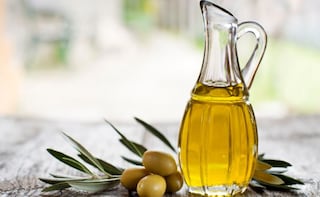Good for heart, cholesterol and digestive purposes, olive oil is slowly making inroads into the culinary circuit as one of the most loved oils. Apart from its umpteen health benefits, this Mediterranean wonder oil is also linked with cutting down depression and improving brain health for the decent amount of omega-3 and omega-6 fatty acids that it contains. Despite being deemed as one of the healthiest oils, it has raised many eyeballs for its use in cooking.
Advertisement
Advertisement
Advertisement
Advertisement
For the latest food news, health tips and recipes, like us on Facebook or follow us on Twitter and YouTube.
Advertisement
Tags:
